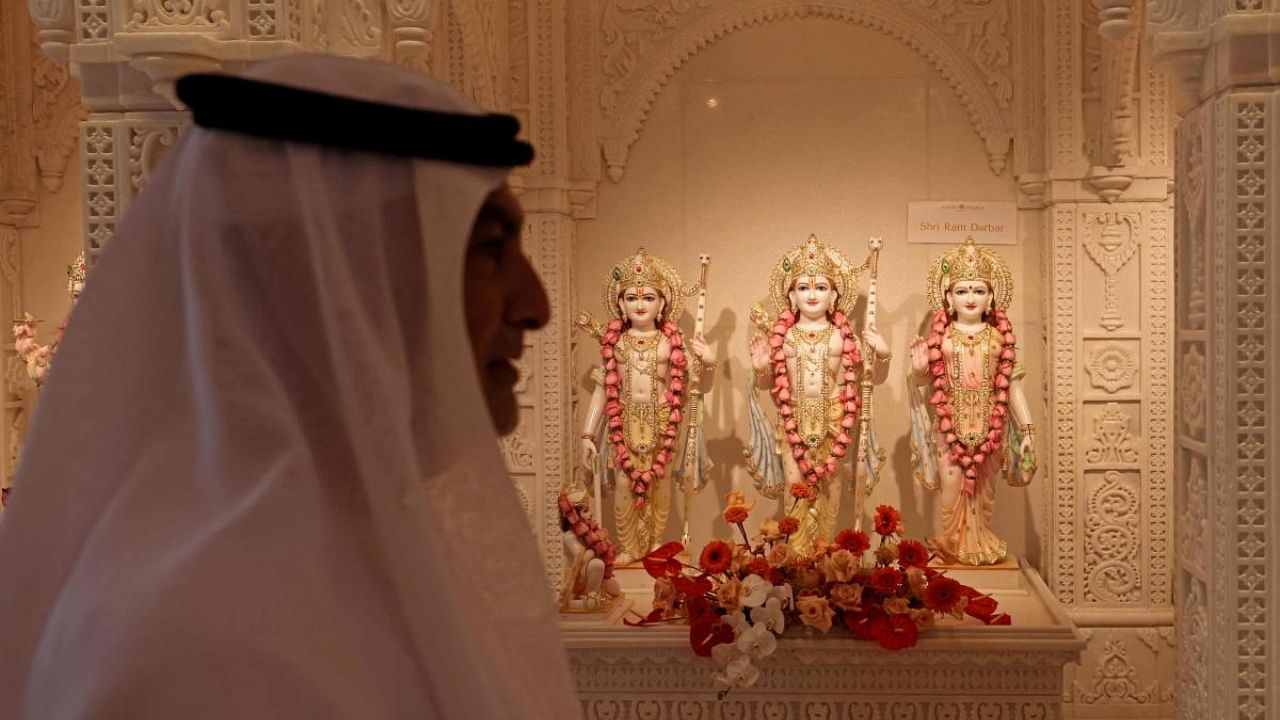
The United Arab Emirates' first purpose-built Hindu temple opened in Dubai on Tuesday, providing a place of worship and support network for the large Indian community including migrant labourers.
The large white marble building with Indian as well as Emirati architectural flourishes sits in the officially Islamic country's Jebel Ali port district, which is also home to churches and a Sikh temple.
Thousands of South Asian workers live in labour camps nearby and will be provided with special buses to allow them to visit the 2,300 square metre (25,000 square feet) temple and its community centre.
Committee member Raju Shroff, who runs a textiles business, said it was the realisation of his father's five-decade dream to open a dedicated temple in Dubai.
"It's an amazing feeling because it's a dream come true, at least for my father, who's been in this country since 1960," he told AFP.
"I got involved in this project only five years ago, but he's been on it for five decades. So the journey has been quite (long)," added Shroff.
The temple, with a distinctive lotus pattern decorating the central skylight, was built at a cost of about 60 million dirhams ($16 million) and can house 1,000 people at a time.
In anticipation of high demand, visitors must apply for a QR code online that they scan for entry. Indians are the UAE's biggest expatriate community, making up about 35 percent of the population of 10 million.
As well as a temple for all different forms of Hinduism, it will act as a support centre for Indian expatriates, particularly labourers, with experts such as lawyers and medical doctors providing voluntary services.
When labourers face distress or special requirements, "they can reach out to us and we will reach out to the community at large," Shroff said.
"There's so many labourers here that we would like to help. And there are so many professionals that would like to help, so we become the platform really... to bridge the gap," he added.
The UAE government has heavily promoted "tolerance" of different religious views, appointing a minister of state for tolerance, holding an annual tolerance festival and declaring 2019 as a year of tolerance.